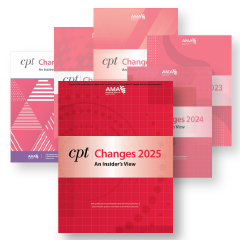by Find-A-Code™
Oct 2nd, 2023
No medical coder is perfect. Medical billing codes are complicated, and mistakes happen. It is part of the job. We were curious about the most common mistakes coders make, so we did some research. We ran across an interesting piece published by the American Medical Association (AMA), the owners and managers of the well-known CPT code set.
The AMA's Kevin O'Reilly did a fantastic job detailing eight routine medical coding mistakes that can lead government investigators to suspect fraudulent or abusive billing practices. In order to avoid any suspicion, medical coders should be careful to avoid the mistakes O'Reilly discussed in his piece.
Without getting into much detail, here they are:
1. Improper Unbundling
The practice of unbundling involves separating procedures or services that are normally bundled together in order to bill them separately. There are legitimate reasons for unbundling. However, frequent unbundling encourages suspicions that healthcare providers are doing so in order to increase reimbursements. Unbundling should be utilized sparingly.
2. Upcoding
Upcoding is the practice of reporting the highest value procedure or service in order to maximize billing. If there is a question between two codes, choosing the higher value code exclusively for the purposes of charging more would be considered upcoding. It should be avoided.
3. Not Checking the NCCI
The CMS' National Correct Coding Initiative (NCCI) is designed to ensure proper coding and billing when multiple codes are involved. Failing to consult the NCCI could lead to incorrect coding. Doing it too frequently could create suspicions.
4. Incorrect Use of Modifiers
Next is the incorrect use of certain modifiers. O'Reilly discusses two similar practices in his post: not appending appropriate and inappropriate modifiers as needed. Assuming you are already a certified medical coder or biller, you know what this means. No further explanation is necessary.
5. Using Modifier 22 Too Frequently
Modifier 22, Increased Procedural Services, is a modifier utilized to report services that go above and beyond what is typical. A clinician might have to spend more time than normal or employ special skills to treat a patient due to the severity of their condition.
O'Reilly suggests that Modifier 22 can be used too frequently. As with unbundling, Modifier 22 should be used as little as possible. Bear in mind that using it requires providing supporting documentation.
6. Improper Infusion and Hydration Reporting
Documenting start and end times for infusion and hydration procedures is necessary to ensure proper coding. Unfortunately, proper coding is often the result of not keeping accurate records. Things become more complicated when infusion and hydration procedures are performed over multiple days. They should be reported as separate procedures on every day they occur.
7. Improper Injection Codes
Injections can be coded together or separately depending on when they occur. Coder should understand the nuances of reporting injections to make sure they are coded properly.
8. Utilizing Unlisted Codes
There are cases for which unlisted codes need to be utilized. However, unlisted codes must always be supported with documentation. Utilizing unlisted codes improperly only complicates matters. Too many of them can come back to bite a healthcare provider.
Medical coding is by no means an easy job. We commend those coders who work hard day in and day out to do what they do. Without them, the medical billing system would not work.
With all of that said, mistakes do happen. Medical coders owe it to themselves and their employers to do everything they can to avoid mistakes. The fewer the mistakes the less likely a healthcare provider is to run into trouble.


 Quick, Current, Complete - www.findacode.com
Quick, Current, Complete - www.findacode.com